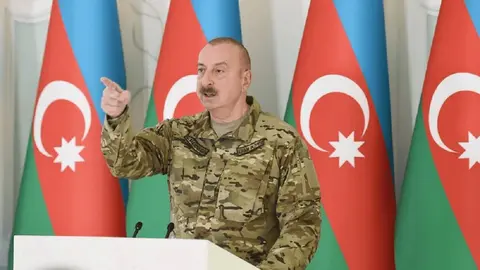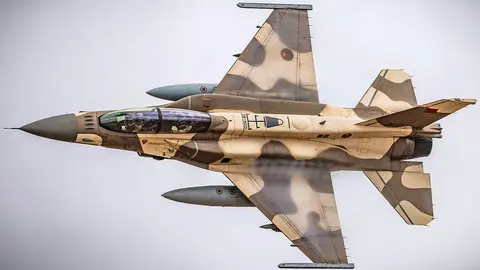Azerbaijan, 35th anniversary of Black January: when the country emerged from communism and began an era of development and prosperity
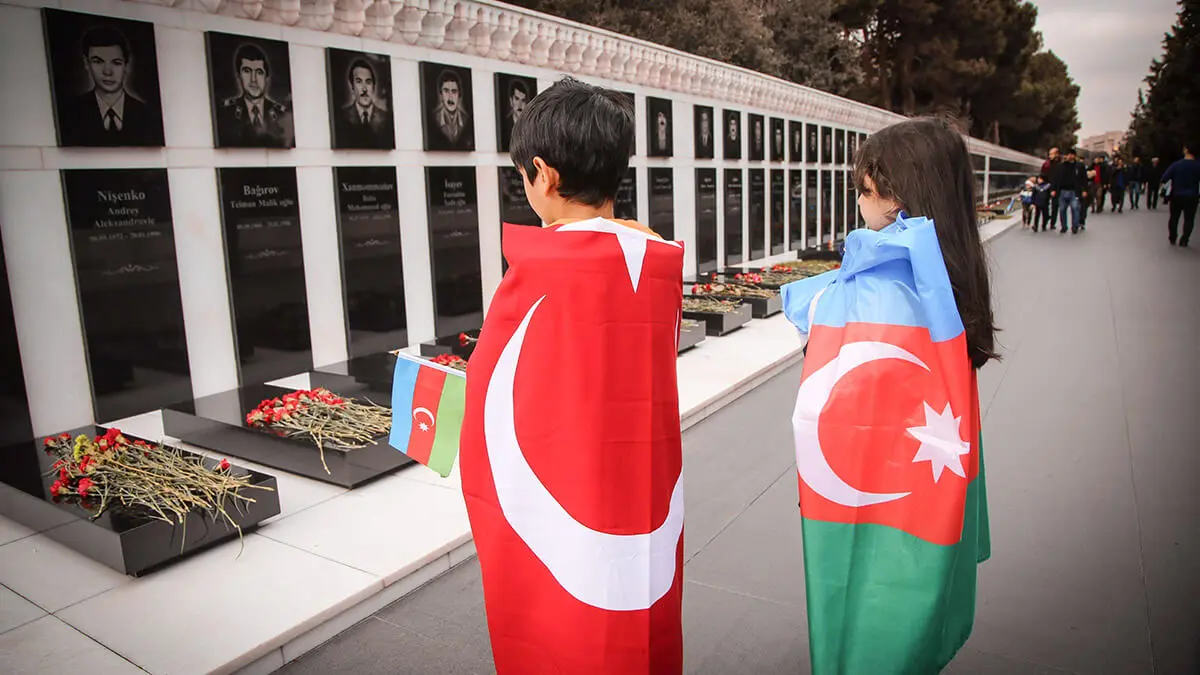
Why is this month of January 1990 so important in the history of modern Azerbaijan?
The answer is clear. It is a day to pay tribute to the victims who gave their lives for the territorial integrity and sovereignty of the newly independent Azerbaijan that was leaving communism and the influence of the then decadent Soviet Union.
It should be noted that the celebration has intensified in the last five years with the successful liberation of the territories occupied by Armenia in the early 90s of the last century.
By putting an end to the presence of foreign troops on its territory, Azerbaijan has further strengthened its sovereignty and independence over the past five years, placing the country in a privileged position of development in the South Caucasus and in its wider neighbourhood, enhancing its role as a regional middle power. But also with an international commitment, as we have recently seen with the holding of the COP29 summit in Baku from 11 to 22 November last year.
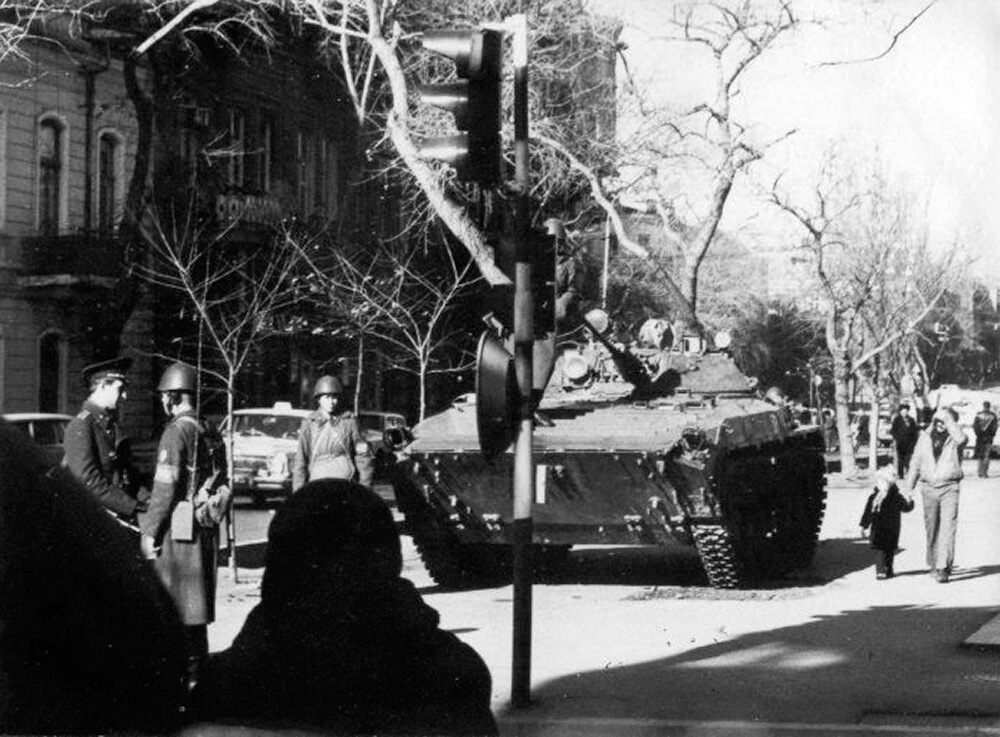
In this sense, when one travels to Azerbaijan, one clearly perceives how the inhabitants of this country consider that the restoration of full territorial integrity would not have been possible without the heroic sacrifices of thousands of people, among whom the martyrs of Black January 1990 should be remembered.
Let us briefly recall these tragic events that marked a turning point in the country's history.
Let us look briefly at history: we are at a time marked by the disintegration of the Soviet Union and a situation of tension and unresolved conflicts in the South Caucasus region, which at that time wanted to become independent, giving rise to the current republics of Azerbaijan, Armenia and Georgia.
Focusing on the tragic events in Azerbaijan in the weeks leading up to the Soviet military invasion, the Azerbaijani people protested against Moscow's inaction in the face of what they had already predicted would be Armenia's close ally in the region. Armenia took advantage of this situation to annex Nagorno-Karabakh, then an autonomous region of Soviet Azerbaijan. In response to this unrest, the Azerbaijani people intensified their protests with cries of independence, which were brutally suppressed by the Soviet army.
On 19 and 20 January 1990, 35,000 Soviet soldiers, with the excuse of maintaining peace and order, brutally repressed the Azerbaijani people, thwarting their desire for independence and freedom in the face of a Soviet regime that was already moribund and on the verge of collapse and disintegration, as we would finally see happen on 8 December 1991 with the signing of the Treaty of Belavezha, which would mean the end of the USSR.
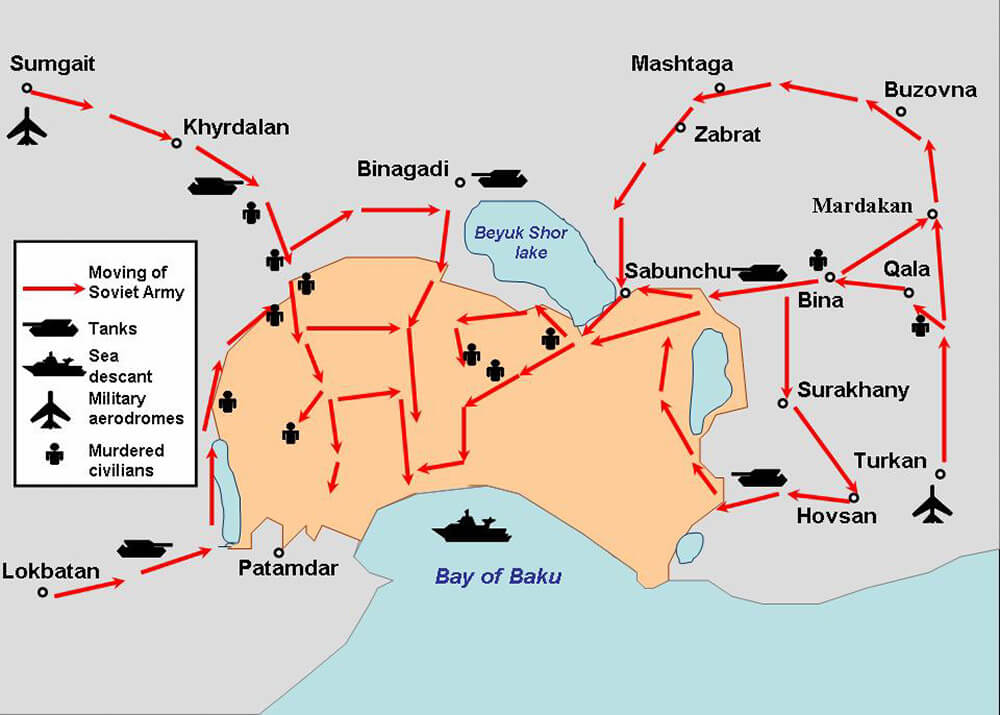
In those sad days in January 1990, as a result of the military repression aimed at crushing and preventing any attempt by the Azerbaijani independence movement to achieve freedom, the Soviet military forces brutally repressed the unarmed civilian population, resulting in the deaths of almost 150 civilians and a large number of wounded. Such events are known in the history of the Republic of Azerbaijan as ‘Black January’.
Soviet propaganda attempted to justify the bloodshed of innocent civilians on the pretext that order had been maintained in the city of Baku. However, such a narrative was ineffective and served to further discredit Moscow's totally disproportionate actions. All this contributed to the fact that thanks to the seeds of the martyrs' blood, a national sense of independence germinated among the people. Thanks to the blood shed by civilians, a glorious path began, culminating in today's successful modern Azerbaijan of 2025.
These events in January 1990 caused hundreds of Azerbaijanis to leave the ranks of the Communist Party and even the Supreme Soviet, the parliament of the Azerbaijan Soviet Socialist Republic at the time, condemned the acts committed by the Soviet army and ordered from Moscow. As a result, on 18 October 1991, 71 years after the loss of its independence, which had been briefly achieved during the period of the Azerbaijan Democratic Republic (1918-1920), the Republic of Azerbaijan restored its independence. This independence was in fact partial, as the country was mutilated, with part of its territory occupied by neighbouring Armenia.
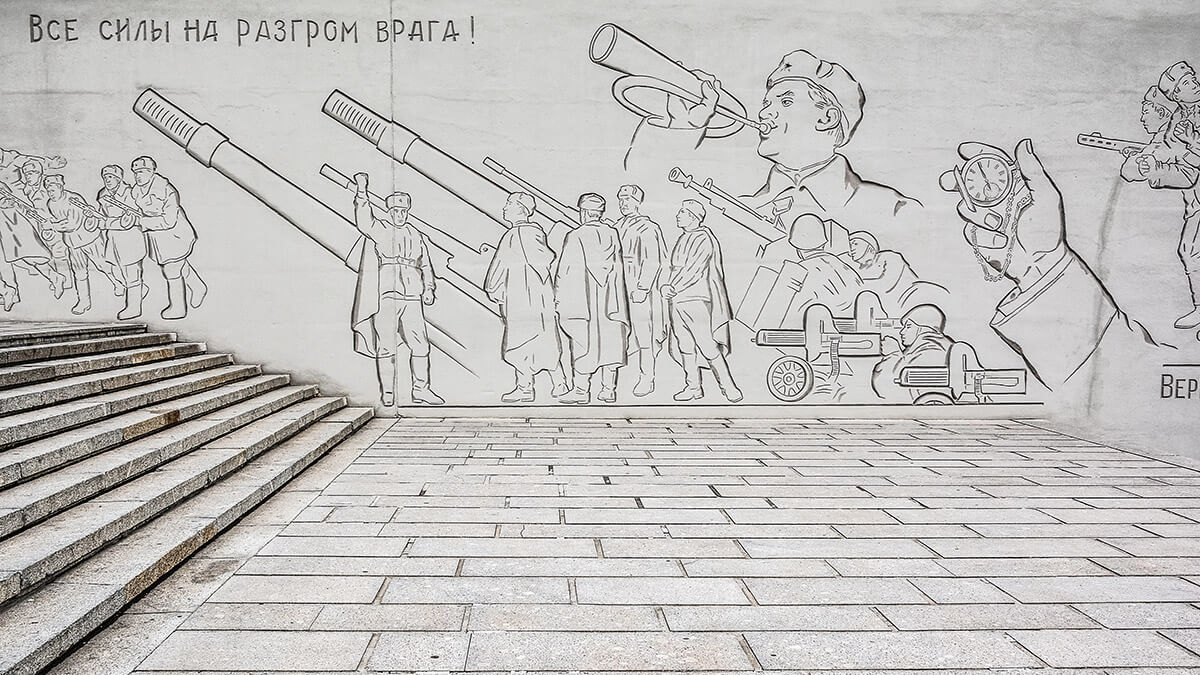
Independence from the USSR had been achieved, but full restoration of territorial integrity remained to be achieved.
Restoration of territorial integrity: looking to the future with pride and responsibility
In the early 1990s, Armenia launched a war against Azerbaijan, which resulted in some 700,000 Azerbaijanis being expelled from their homeland in the Karabakh region and surrounding districts. This led to a humanitarian crisis that the newly formed Azerbaijani state had to cope with. Taking advantage of the instability in Azerbaijan, Armenia launched a full-scale war against Azerbaijan with the aim of taking control of the Karabakh region, where an Armenian minority lived. For almost 30 years these territories remained under Armenian occupation.
For decades in Azerbaijan, Black January was a day of mourning and remembrance for the victims of Soviet oppression in 1990, which also allowed Armenia to launch a military campaign against the territory of Azerbaijan. The sacrifice of the Black January martyrs became a source of inspiration for the Azerbaijani people in the face of oppression and a motivation to regain the territories occupied by Armenia after the first Karabakh war.
In 2020 the second Karabakh war took place, and in 2023 a decisive anti-terrorist operation led by President Ilham Aliyev against separatist forces in the Karabakh region put an end to the occupation of Azerbaijani territories. Finally, with the withdrawal of Russian peacekeeping forces from the Karabakh region in April 2024, the country completed the restoration of its sovereignty over internationally recognised territories in accordance with international law and insistent UN resolutions.
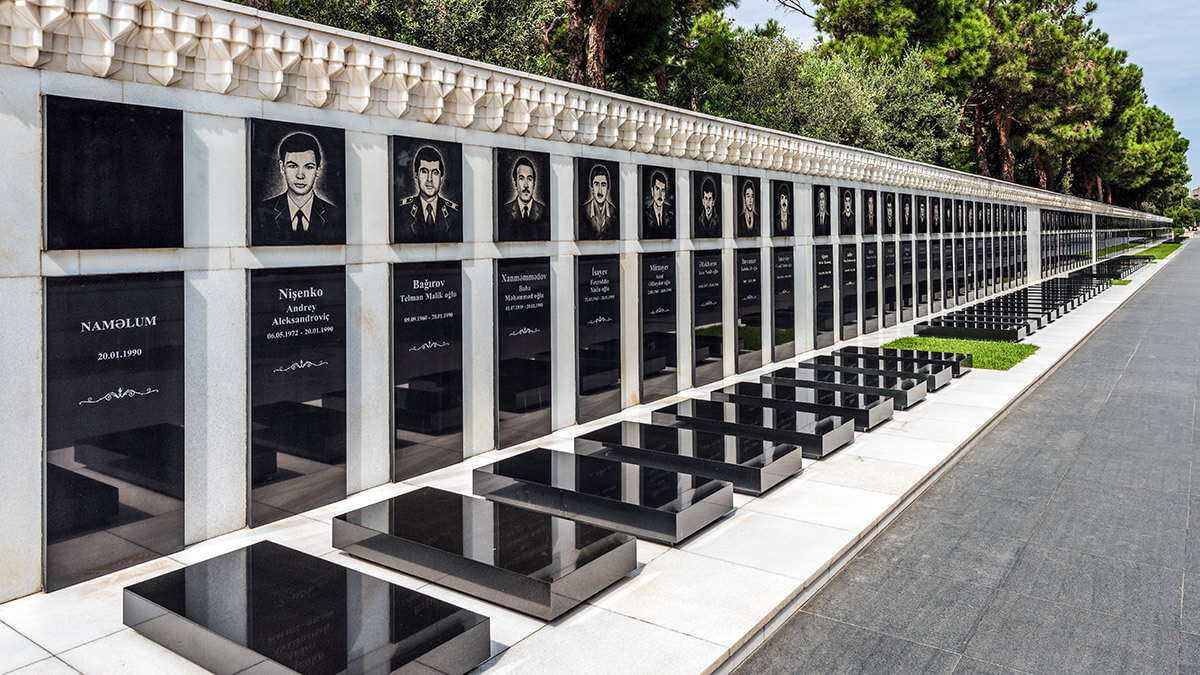
Azerbaijani citizens visiting Martyrs' Alley in Baku today do so with a renewed sense of pride. Sadness has been transformed 35 years after his death into a celebration that reminds the Azerbaijani people that their dead had a meaning and a why. The ‘shahids’, i.e. the martyrs in Azerbaijani, who sacrificed their lives in January 1990, are now seen as champions of the sovereignty and independence of present-day Azerbaijan, bringing a deep sense of justice and reparation for the sacrifices they had to make in giving their lives and being remembered for their sacrifice as the Black January martyrs by the people of Azerbaijan. Their death has been given meaning and justice and reparations have been made.
As we enter the month of 2025, Azerbaijan commemorates the 35th anniversary of the events of Black January, but it does so in a different way. The country is now different. Now the country must also know how to win and manage the victory intelligently so that it becomes not only a national but also a shared success for the whole region and the international community.
Azerbaijan remembers its past with pride and looks to the future with determination and renewed self-confidence, knowing that it is already a united country. It can collectively aspire to a better and promising future. Azerbaijan is now a strong, united and independent country, but it also has a great responsibility as a regional leader as a source of economic development and regional stability, not only in relation to the South Caucasus but also in relation to its extended neighbourhood.
Carlos Uriarte Sánchez, Professor of Law at the UNIR and International Analyst


